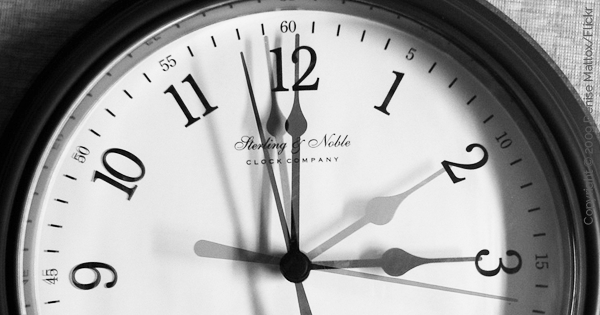Advertisement
For the most part, when we turn back the clock an hour in the fall for daylight savings, we rejoice at the added hour to our weekend. Did you ever stop to wonder how that extra hour may affect your health, though?
Most research has been done during the daylight savings in the spring when we lose an hour. So far, research has shown that turning back the clocks is associated with more "cyberloafing" (or surfing the internet instead of working) as well as an increase in suicide in young men.
“The autumn change is usually the more benign one,” said Michael Grandner, a instructor in psychiatry at the University of Pennsylvania and a member of the Center for Sleep and Circadian Neurobiology. “Most people’s internal rhythms aren't exactly 24 hours — they’re closer to maybe 24.5 hours. So adding time to the day is really easy for the body to do.”
The time change can still throw off your internal clock, which tells you what time to wake up, go to sleep, or even when you should eat.
"The fall transition — typically associated with [more sleep] — still throws off your internal body clock, which means it can affect your health," Dr. Alfred Lewy, director of the Sleep and Mood Disorders Laboratory at Oregon Health & Science University. It makes sense, really: “We try to force our sleep-wake cycle into a new time, but our body rhythms are still stuck on the old time,” he said.
But what's the big deal? It's only a 60 minute shift, right? How hard can it be to adjust?
“You would think that a one-hour change would be easy to adjust to — it’s known that flying one hour east or west doesn’t produce jet lag,” Lewy told Yahoo Health. "Problem is, with the autumn change, you’re trying to shift your body clock later, while morning sunlight is invading earlier. The new sunlight-dark cycle is working against the direction of change we need to make,” he said.
Here are four ways the time change may be affecting your health:
1. Car accidents increase. More specifically, according to a Texas A&M University study, there is a seven percent increase in car accidents for the week following daylight savings. The likelihood of an accident during a morning commute jacks up even more--up to 14 percent. “Just like when you have jet lag, your performance falls. Your cognitive abilities decrease,” explained Lewy. “Even though you’re not [necessarily] sleep deprived, your rhythms aren’t adjusted, and that produces deficits in performance.”
National Highway Traffic Safety Administration also warns that it may take some time to adjust to low-light driving, especially when you’re used to commuting home in broad daylight.
2. Your odds of a heart attack decrease. That's right, there is a positive effect of daylight savings--and it's not necessarily because of the extra sleep. Apparently the fall time change may give your body "a small break from all the cardiac strain."
According to Yahoo! Health, "In a 2014 study of 42,060 people, researchers found a 21 percent decrease in heart-attack cases on the Tuesday following the fall time change. By contrast, they noticed a 24 percent increase in heart-attack incidence on the Monday after the clock springs forward in March."
The explanation researchers found might surprise you. “Most people have heart attacks in the morning, because your blood pressure dips overnight and then rises sharply at the end of the night into the morning,” said Grandner. “Staying in bed a little longer might give your body more time to recover — to bring your blood pressure back up to daytime levels, without it being such a sharp increase.”
3. Your mood might improve slightly. Another positive outcome of the time change? You mood might improve! Before the fall time change, there's a good change you were waking up to dark mornings, which can really make a difference on your mood. “You’re waking up before dawn,” said Lewy. “That seems to trigger winter depression in vulnerable people.”
“Morning light is one of the most powerful things you can [expose yourself to] in order to stave off winter blues,” Grandner said.
"That means people with cold-weather depression are enjoying a little bit of a respite right now,” Lewy said. “The time change kind of stops the process for a few weeks, because we go back to waking up into sunlight.”
4. Your quality of sleep might suffer. “People may stay up later [after the time change] — that’s a little bit easier to do,” Lewy told Yahoo Health. “But they’re not sleeping in that hour later, because their body clock is waking them up. So they’re not actually getting that extra hour of sleep on Saturday night, and then on Sunday night, they actually be getting less sleep than they did the week before.”
If you find that your sleep is suffering, try taking .3 milligrams of melatonin in the morning for 4 days. “Melatonin is a chemical dark signal. It shifts the body clock later and counteracts the effect of morning light,” explained Lewy. "This tiny dose probably isn’t enough to make you drowsy — but it will help your body adjust more quickly to the change," he said.
What do you think about these changes in your health? Are you surprised? Let us know your thoughts in the comments!
Copyright © 2009 Denise Mattox/Flickr




